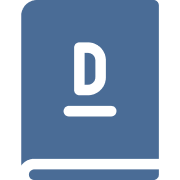Grammar Homework Help - Best Online Help for Students
As the leading provider of online grammar homework help, TutorBin prides itself on providing students with a comprehensive platform for academic success. Our platform stands out as a beacon of support, offering students access to a diverse pool of expert tutors specializing in English grammar. With TutorBin, students can be seamlessly guided through grammar challenges, receiving personalized assistance tailored to their academic needs. The platform ensures clarity in explanations, interactive learning sessions, and a user-friendly interface, fostering a conducive environment for students to grasp and apply complex grammatical concepts. From grammar fundamentals to advanced language structures, TutorBin is committed to providing top-notch online help empowering students to excel in their academic endeavors.
Grammar Assignment Help
Who Can Benefit from Our Online Grammar Homework Help?
At TutorBin, our online grammar homework help is designed to benefit students across various academic levels who seek precision and mastery in English grammar. Whether you're a high school student striving for grammatical excellence in your essays, a college student working on complex linguistic assignments, or a non-native English speaker aiming to enhance language proficiency, our expert tutors are here to provide personalized assistance. Our platform ensures clarity and seamless communication, guiding you through grammatical difficulties with a structured and synchronized approach. You can rely on TutorBin to improve your grammar skills, foster academic success, and boost your language confidence.
Grammar Tutors Online - Is It Worth To Hire Them?
The benefits of hiring online grammar tutors at TutorBin are undeniable for students looking to improve their language skills. Our grammar tutors are a dedicated team of experienced educators who specialize in unraveling the complexities of English grammar. They deliver personalized guidance, addressing individual learning needs with a tailored approach. Our tutors assist students in understanding grammatical rules and provide practical applications through interactive sessions. With TutorBin grammar tutors, students gain valuable insights into language nuances, receive constructive feedback on their writing, and develop a solid foundation in grammar. The investment in hiring our skilled tutors translates into improved academic performance and heightened confidence in navigating the complexities of the English language. Trust us to connect you with expert grammar tutors committed to your linguistic success.
Do My Grammar Homework
Challenges Where Students Need Grammar Assignment Help
Struggling with the "Do my Grammar homework" predicament? TutorBin recognizes common challenges where students often seek Grammar assignment help:
1. Complex Grammar Rules
Struggling with complex grammar rules, such as understanding the nuances of verb tenses, sentence structures, and punctuation.
2. Application of Grammar Concepts
Translating theoretical knowledge into practical application, particularly when it comes to crafting well-structured and grammatically correct sentences.
3. Syntax and Sentence Construction
Facing difficulties with syntax and constructing sentences that not only convey the intended meaning but also adhere to the grammatical norms.
4. Advanced Grammar Topics
Dealing with more advanced topics like subjunctive mood, conditional sentences, and complex grammatical structures that demand a deeper understanding.
5. Proofreading & Editing
Perfecting the art of proofreading and editing to identify and rectify grammatical errors in one's own writing.
6. Vocabulary & Language Fluency
Enhancing vocabulary and achieving fluency in the language while maintaining grammatical accuracy in written assignments.
7. Original Work
Ensuring originality in writing while navigating the challenges of paraphrasing and citing sources appropriately.
Grammar Topics & Concepts Covered
| Topics |
Concepts |
| Parts of speech |
Noun, Pronoun, Verb, Adjective, Adverb, Preposition, Conjunction, Interjection |
| Sentence Structure |
Subject, Predicate, Clause, Phrase |
| Punctuation |
Comma, Period, Question Mark, Exclamation Mark, Colon, Semicolon |
| Grammar Rules |
Subject-Verb Agreement, Tense, Voice, Mood |
| Syntax |
Sentence arrangement and structure |
| Modifiers |
Adjectives and Adverbs usage |
| Clarity & Style |
Conciseness, Coherence, Consistency |
| Grammar in Writing |
Applying grammatical rules in composition |
Grammar Homework Help
What Do You Get When You Pay Someone to Do My Grammar Homework?
When you decide to pay someone to do your grammar homework, you're investing in more than just completing assignments. Here's what you get:
1. Accuracy and Precision
Professionals ensure that your grammar homework is accurate, free from errors, and follows the rules of grammar meticulously.
2. Time Savings
By hiring someone, you save valuable time that can be used for other priorities. Letting experts handle your grammar homework allows you to focus on what matters most to you.
3. Understanding the Concepts
Professionals don't just fix errors; they help you understand grammar concepts better. You gain insights into why certain rules apply, enhancing your overall understanding.
4. Confidence Boost
Submitting flawless homework boosts your confidence. It's not just about the grades; it's about feeling assured that your work is polished and well-crafted.
5. Deadline Adherence
Professionals are accustomed to working within deadlines. When you pay someone, you can trust that your grammar homework will be delivered on time, relieving you of last-minute stress.
6. Personalized Assistance
Get personalized attention and feedback on your specific grammar challenges. A professional can tailor their assistance to address your unique needs.
7. Learning Resource
The corrected homework serves as a learning resource. Reviewing the edits helps you identify recurring mistakes, turning your homework into a valuable study tool.
8. Consistent Quality
Professionals maintain consistent quality across your assignments, ensuring that each piece of homework meets a high standard of correctness and clarity.
TutorBin Grammar Homework Help Benefits
Choosing TutorBin for your grammar homework assistance comes with a range of benefits:
1. Expert Tutors
Our team comprises experienced tutors with a deep understanding of grammar rules and nuances. Your homework is in capable hands.
2. 24/7 Availability
Need help at any time? TutorBin offers round-the-clock assistance, ensuring that support is available whenever you require it.
3. Customized Solutions
We understand that each student has unique challenges. Our tutors provide customized solutions to address your specific grammar concerns.
4. Affordable Rates
Quality assistance doesn't have to break the bank. TutorBin offers affordable rates for grammar homework help, making it accessible to students.
5. Timely Delivery
We value your time. Expect your corrected grammar homework to be delivered promptly, meeting your submission deadlines.
6. Interactive Learning
Beyond corrections, our tutors engage in interactive sessions, fostering a deeper understanding of grammar concepts for sustained improvement.
7. Secured account
Your privacy matters. TutorBin ensures the Secured account of your information, providing a secure and trustworthy platform for grammar homework assistance.
8. Feedback for Growth
Receive constructive feedback alongside corrections. TutorBin aims not just to fix errors but to empower you with the knowledge to enhance your grammar skills progressively.
Grammar Assignment Help - Quick Assistance From Expert Tutors
When tackling grammar assignments, timely and expert assistance can make a significant difference. Our Grammar Assignment Help service is designed to provide quick support from experienced tutors who excel in the complexities of grammar. Whether you're struggling with sentence structures, punctuation rules, or more complex grammatical concepts, our expert tutors guide you through the challenges. With a commitment to accuracy and clarity, our team ensures that you submit your assignments on time and gain a deeper understanding of grammar principles. Get ready for a boost in confidence and proficiency with our Grammar Assignment Help.
Grammar Homework Help Online Worldwide
Navigating the nuances of grammar doesn't have to be a solitary endeavor, regardless of your location. Our Grammar Homework Help Online extends its reach worldwide, offering assistance to students wherever they are. Whether you need immediate help or seek ongoing support, our online platform connects you with experienced tutors who can address your grammar concerns effectively. With a global network of students availing of our services, we foster an inclusive learning environment where diverse linguistic challenges are met with expert solutions. Explore the convenience of accessing top-notch Grammar Homework Help from the comfort of your own space, connecting with tutors who understand the difficulties of the English language on a global scale.
FAQs on Grammar Help Searched By Students
Can I pay someone to do my grammar homework for me?
Absolutely! At TutorBin, you can pay for our qualified tutors to handle your grammar homework, leading to a better understanding and improved proficiency in the subject. Seeking assistance from online grammar tutors can significantly enhance your academic growth.
Where can I find someone reliable to do my grammar assignment?
You can find reliable grammar assignment help from our team of experts who specialize in grammar and can assist you with your assignments effectively.
Can you do my grammar homework solution for me?
Yes, at TutorBin, our subject matter experts can fulfill your request to do my grammar homework for me better than others at an economical price.
How much does a grammar tutor cost?
There is no specific charge for a grammar tutor. The cost of a grammar tutor varies based on factors such as assignment complexity, word limit, and deadline proximity.
Can someone write my grammar assignment for me?
Yes, our experts are capable of writing your grammar assignment for you, ensuring high-quality work that adheres to your academic requirements.
Do your experts provide well-researched grammar assignment solutions?
Absolutely, our experts are well-versed in grammar and can provide you with well-researched and customized assignment solutions tailored to your specific needs.










